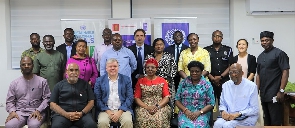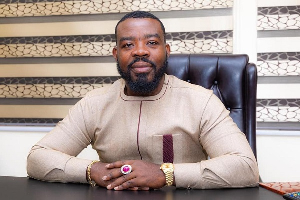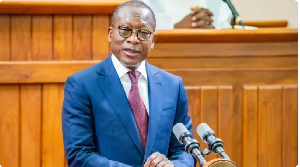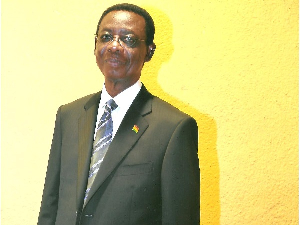The United Nations Development Programme (UNDP), with funding from the Government of Denmark, commenced implementation of a new project to contribute to peace and security in Ghana, Benin, Côte d’Ivoire, and Togo.
The project dubbed “Strengthening Community Resilience and Engagement to Prevent and Respond to Violent Extremism in Benin, Côte d’Ivoire, Ghana, and Togo”, will contribute to addressing the drivers of radicalization leading to violent extremism, while also strengthening the capacity of the communities to respond and resist such threats.
The project seeks to build resilient communities and foster stability in the coastal West African countries of Benin, Côte d’Ivoire, Ghana, and Togo.
Highlighting the importance of the project, H.E. Mr. Tom Nørring, Denmark Ambassador in Ghana said, “The launch of this project signifies a critical milestone in our unwavering commitment to preventing and countering violent extremism in Ghana and coastal West African states. By empowering local voices, building community resilience, and fostering regional collaboration, we aim to address the underlying causes of conflict and insecurity. Through strong partnerships like this and shared vision, we strive to create a peaceful and inclusive future for all”.
At the launch, Angela Lusigi, UNDP’s Resident Representative in Ghana, underscored why sustained collaboration is necessary to effectively address violent extremism. She highlighted the urgent need to prioritize decisive action in response to threats.
“Our border communities and young people are most at risk. It is now more important than ever to work across borders to get our policies and programming right and at scale, to counter and prevent the rise of violent extremism. There is a need for a more integrated and robust sub-regional response that goes beyond security approaches to address emerging drivers of conflict by building community resilience”, she noted.
The United Nation’s Resident Coordinator (RC) for Ghana, Charles Abani, highlighted the significance of united efforts between the UN and various sectors including government institutions. He emphasized that this collaboration would foster effective resource integration, ultimately leading to a more impactful outcome.
Ambrose Dery, Minister of Interior in Ghana, whose speech was read on his behalf by Adelaide Anno-Kumi, Chief Director of the Ministry of Interior, noted that “We recognize the need to prevent and combat violent extremist groups and terrorists who threaten Ghana’s security. Through strategic inter-agency coordination, we can combat the menace and ensure a safer and more prosperous future for our nation”.
The project will enhance early warning and response mechanisms, and strengthen socio-economic resilience among at-risk youth and women. It will also promote alternative counter-narratives to combat hate speech that promote violence and violent extremism in target locations.
Regional News of Sunday, 20 August 2023
Source: Praise Nutakor, Contributor
UNDP and Denmark partner to strengthen community resilience to combat violent extremism in West Africa
Entertainment












